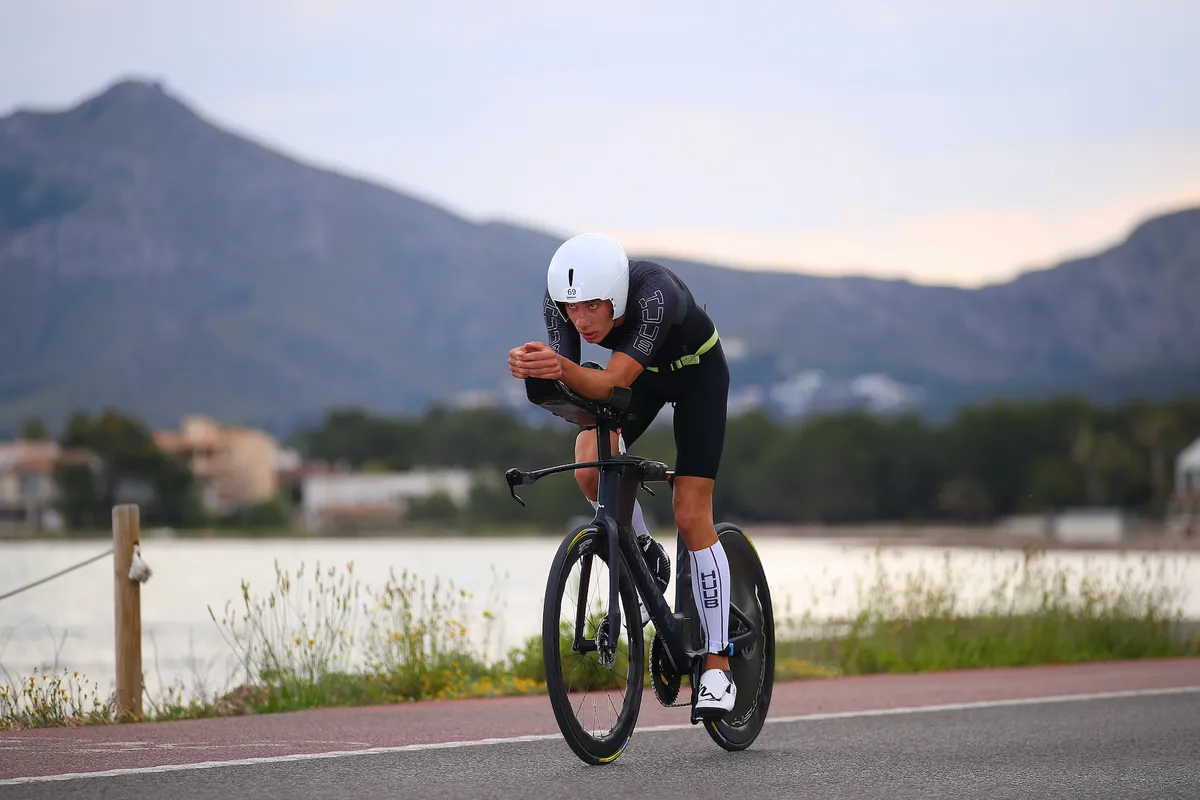Are you tackling your first 70.3 or full Ironman this season? If so you could well be wondering if a triathlon bike is really needed, or whether the trusty road bike will be enough. Here, 220 bike experts Rob Banino and Nik Cook take up the question…
You can upgrade any of the parts on a road bike to make them lighter and more aero (wheels are the best place to start), but as far as the bare minimum set-up is concerned, all you actually need is a bike (says Rob Banino).
Provided it’s got a full and functioning complement of wheels, saddle, frame, gears, brakes and bars, it’ll get you through any 70.3 or Ironman bike leg.
Put the work in and keep sufficiently fuelled up and you could do it on a Penny Farthing (if the rules allowed). It wouldn’t be impossible; you’d just be at a serious disadvantage if you wanted to set a competitive time.
So, assuming your fitness and food are sorted, what’s the least you need to add to a standard road bike to reduce that disadvantage? Well, not much really. Just clip-on aerobars, clipless pedals and shoes, and a way to carry all your fuel, tools and spares.
Clipless pedals and triathlon bike shoes will make your pedalling more efficient as the bindings and stiff soles mean more of your legs’ power goes into turning the cranks. And clip-on aerobars will save you more energy by making you ride in a more aerodynamic position.
Anything beyond that is helpful, but you’ll find the performance improvement in components gets progressively smaller the further their prices rise.
So don’t despair if you can’t spend a fortune on a dedicated triathlon bike for Ironmans, because you can still be competitive on a road bike with some clipless pedals and clip-on bars – and the right training.
Don’t believe me? Well, consider the fact that Chrissie Wellington not only placed fifth at Ironman UK 70.3 and the Long Course Age Group World Championships, but also won Ironman Korea and the Alpe d’Huez Long Course Triathlon while having to ‘make do’ with just a road bike. Yes, a dedicated triathlon bike will help your performance, but you can still do well without one.
“A dedicated TT bike will always be quicker”

All things being equal, on almost all 70.3 and Ironman courses a dedicated TT bike will always be quicker (writes Nik Cook). You can certainly tweak and modify a road bike for the task but, without the steep seat angle and other differentiating features of a TT bike, it’ll always be a compromise.
There are, however, a few boxes to tick before that ‘all being equal’ qualifier applies. The most important is fit. You can have the most aerodynamically advanced frame and wheel-set available, but the biggest drag factor is the mass of bones, flesh and Lycra sat on it.
If you can’t sustain your aero position and end up riding a significant chunk of the bike leg sat up on the bullhorns, you’re probably better off on a road bike.
For long-course racing, your aero position has to be comfortable, sustainable and allow you to run a marathon when you get off. If you’re going down the TT route, I’d strongly advise getting a professional bike fit.
But the process doesn’t end there. You’ve got to get out and train on the thing. Far too many triathletes treat their race bike as a museum piece, wrapping it in cotton wool, gazing lovingly at it and, unless conditions are perfect, only riding it on race day.
You’ve got to do the bulk of your training on it, including your long rides. That’s when you’ll adapt to it and you can tweak it to you. You’ll learn to be comfortable on it, discover its handling quirks and become confident staying aero through bends and down descents.
That’s why part of your budget for buying a TT should go towards some durable training wheels. Fortunately, many off-the-peg entry-to-mid level TT bikes come with wheelsets more suited to training, so you can start logging the miles on it straight away and start saving for your race-day deep-section wheels
For lots more bike advice head to our Gear section
Top image credit: Joosep Martinson/Getty Images for Ironman
